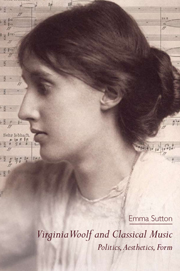5 - What It Really Means to be English
Published online by Cambridge University Press: 05 April 2014
Summary
Appropriately for a work that so thoroughly reinvents biography, even the exact starting point of Orlando is ambiguous: a painting of the hero(ine) precedes the title page, and the dedication is followed by a two-page ‘Preface’ in which Woolf declares her debts to ‘dead’ and ‘illustrious’ ‘friends’ from Thomas Browne to De Quincey to Pater. The living are also acknowledged in this playful meta-text and among them are several music scholars and amateurs. The preface records Woolf's thanks to Saxon Sydney-Turner's ‘wide and peculiar erudition’, to Edward Sackville-West and to Lord Berners, ‘whose knowledge of Elizabethan music has proved invaluable’ (O, 5). It would be a naïve reader who read Orlando literally, but this reference to Elizabethan music is less mischievous than some since it alerts readers to a subject that is indeed the focus of some attention in her fictional biography, as it was more extensively for many of her contemporaries. As we shall see, there was something of a Tudor craze in the 1920s and it was one that encompassed music; the ‘discovery’ of a history of English music was one facet of the English Musical Renaissance, a part closely allied to nationalism and to constructions of English identity. This chapter explores Woolf's responses to narratives about music and Englishness as manifested in three interrelated phenomena: the early music revival; the folk music movement; and anti-and philo-Semitic discourses about music.
- Type
- Chapter
- Information
- Virginia Woolf and Classical MusicPolitics, Aesthetics, Form, pp. 113 - 136Publisher: Edinburgh University PressPrint publication year: 2013

